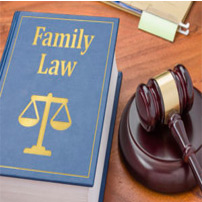What You Need To Know About Tax Fraud Before Your Divorce

New Jersey State Law requires financial documents to be exchanged between spouses during a divorce. Throughout the process detailed financial information will be disclosed, including tax documents from prior years. In the following article, we will point out two important situations that could have severe civil and potentially criminal tax consequences on individuals. Disclaimer: The information stated herein should not be interpreted as legal advice. To address any specific tax and divorce concerns you may have, please consult, respectively, with a tax attorney and family law attorney.
Judges are obligated to report tax fraud to the IRS
Individuals who falsify their income in their filed submissions to the court can easily open the door to problems with the IRS. In the New Jersey case of Sheridan v. Sheridan, trial judges are required to report tax fraud to the IRS. In that case the court refused to order equitable distribution of a marital property that had been primarily purchased with funds from illegal activities. The court found that it was ethically required to report the intentional underreporting of income to the proper government agencies for them to intervene. Thus, the Sheridan case demonstrates to litigants that if evidence of tax fraud is brought to the attention of a judge, the judge is obligated to report and refer any reasonable inconsistencies to the IRS for a tax audit.
Think before reporting your spouse
Unfortunately, divorces are often filled with feelings of resentment and betrayal. Consequently, it is not uncommon for one spouse to make an accusation against the other with regard to tax noncompliance. The ex-spouse may believe he or she is protected from civil or criminal liability due to innocent spouse relief and may feel empowered to reveal failures to pay taxes, mischaracterization of income, overstated deductions, undisclosed foreign accounts, or a range of other tax crimes.
Although most spouses make accusations like those described above in an attempt to cast a negative light on the other spouse, it is completely possible that the accusing spouse could also be held accountable for the unpaid tax penalties if the accusations turn out to be true. Unless the accusing spouse falls under the protection of the innocent spouse relief program, which is extremely difficult to achieve, he or she may be jointly liable. If you have a suspicion that your partner is not approaching taxes honestly, it may be suitable for you to think about filing a separate tax return.
Conclusion
When filing for a divorce, there can be many complex issues that are involved. The best of interest of your children, receiving alimony, and protection of marital assets to name just a few. However, it is wise to be aware of the realities of tax fraud before entering the divorce process. Most important is to think before you try to report your spouse because you could be implicated as well. Also, it is critical to know that a judge is ethically required to report any evidence of tax fraud they find to the IRS. At the end of the day, an attorney specializing in divorce law and an experienced tax attorney will ensure your legal rights are protected throughout divorce proceedings of any kind.
For more information regarding tax fraud and IRS problems during a divorce contact the law office of Lyons & Associates. At the law office of Lyons & Associates, we represent men and women throughout New Jersey who have unresolved family law matters. We place a premium on personalized service and attention. For a private consultation, contact us online or call our office at 908-575-9777.


